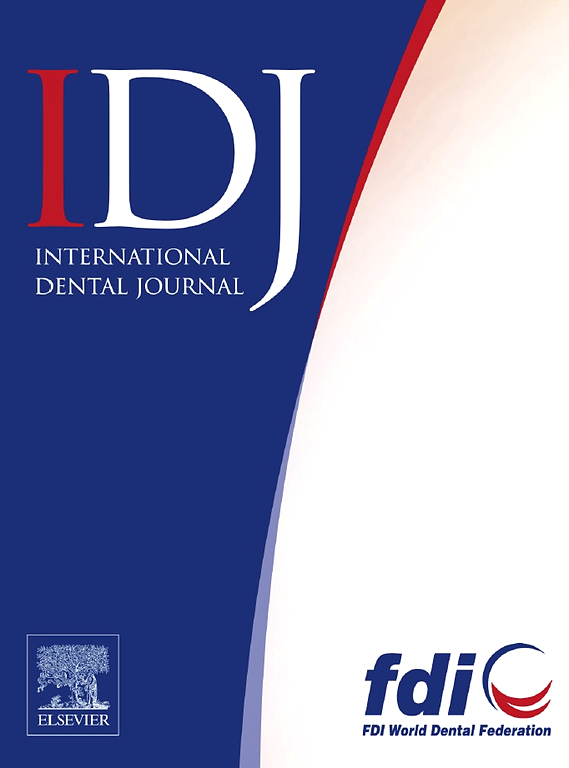Facts and Fallacies of the Fluoride Controversy: A Contemporary Perspective
IF 3.2
3区 医学
Q1 DENTISTRY, ORAL SURGERY & MEDICINE
引用次数: 0
Abstract
Fluoride is a natural element recognized for its dental benefits. Fluoride prevents caries due to its antimicrobial activity, enhancing enamel resistance and promoting remineralization After decades of fluoridation of municipal water supplies to reduce dental caries, an intense debate has resurfaced regarding water fluoridation as a public health strategy to combat caries. This renewed discourse occurs against the backdrop of extensive data that clearly demonstrate the vital role of fluoride in caries prevention. Indeed, the Centres for Disease Control and Prevention has stated water fluoridation as 1 of the top ten public health interventions in the twentieth century. The FDI World Dental Federation also advocates systemic fluoride use as a cost-effective caries prevention strategy, and supports its inclusion in public health policies through a number of policy directives. This debate in the US has intensified as a Court concluded that water fluoridation poses unreasonable risks such as reduction of the intelligence quotient (IQ) in children. Additionally, recent statements from the leadership of the US Health and Human Services agency suggest that water fluoridation may cause more harm than good leading some states, like Utah, to revoke fluoridation mandates This article aims to provide a contemporary perspective on fluoride by revisiting its benefits, controversies, and potential risks. It highlights the dual role of fluoride in both individual oral care and public health and underscores the necessity for safe, equitable, and effective delivery strategies tailored to the needs of diverse populations, balancing its preventive advantages with potential health concerns. The review culminates with a summary of policy statements from the FDI World Dental Federation regarding the promotion of oral health through both systemic and topical fluoridation.
氟化物争议的事实与谬误:当代视角
氟化物是一种天然元素,对牙齿有益。氟化物可以预防龋齿,因为它具有抗菌活性,增强牙釉质抵抗力,促进再矿化。几十年来,为了减少龋齿,市政供水进行了氟化处理,但关于将水氟化处理作为一种防治龋齿的公共卫生策略,一场激烈的辩论重新浮出水面。这一新的讨论是在大量数据明确表明氟化物在预防龋齿方面发挥重要作用的背景下发生的。事实上,疾病控制和预防中心已将水氟化列为20世纪十大公共卫生干预措施之一。外国直接投资世界牙科联合会还提倡将系统使用氟化物作为一种具有成本效益的龋齿预防战略,并支持通过若干政策指示将其纳入公共卫生政策。在美国,这场争论愈演愈烈,因为法院得出结论,水氟化会带来不合理的风险,比如降低儿童的智商。此外,美国卫生与公众服务机构领导层最近的声明表明,水氟化可能弊大于利,导致一些州,如犹他州,撤销氟化授权。本文旨在通过重新审视氟的好处、争议和潜在风险,提供一个当代的视角。它强调了氟化物在个人口腔护理和公共卫生方面的双重作用,并强调必须根据不同人群的需要制定安全、公平和有效的提供战略,平衡其预防优势与潜在的健康问题。审查最后总结了外国直接投资世界牙科联合会关于通过全身和局部氟化促进口腔健康的政策声明。
本文章由计算机程序翻译,如有差异,请以英文原文为准。
求助全文
约1分钟内获得全文
求助全文
来源期刊

International dental journal
医学-牙科与口腔外科
CiteScore
4.80
自引率
6.10%
发文量
159
审稿时长
63 days
期刊介绍:
The International Dental Journal features peer-reviewed, scientific articles relevant to international oral health issues, as well as practical, informative articles aimed at clinicians.
 求助内容:
求助内容: 应助结果提醒方式:
应助结果提醒方式:


